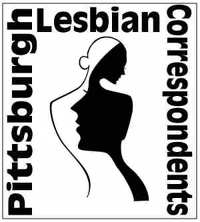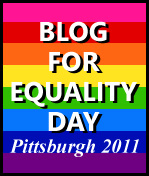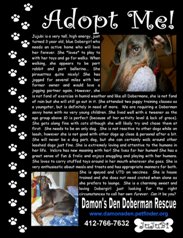
From Thursday's Post-Gazette:
The controversy over the gay marriage bill should add numbers and energy to Pittsburgh Three Rivers PrideFest 2006, taking place this weekend.
PrideFest is the occasion for the gay, lesbian, bisexual and transgender community to hit the streets. It will begin at noon Saturday with a march from the Eliza Furnace Trail, Downtown, to the festival grounds at Riverfront Park on the North Shore.
A decent piece, situated in the entertainment section where it should be well read. The article goes on to mention the Theater Festival, the movie from the Film Society, and an event at the Holiday Bar. What it fails to mention (or just alludes to) is Pride Night at PNC Park. I want a specific reference to the Bucs being homo-welcoming.
The City Paper took a different approach, focusing on the two parades/marches associated with Pride: the Pride Awareness March and the Dyke March. I like the thoughtful contrast between the two events.
A separate and more overtly political statement by Pittsburgh?s gay community is planned for the day before PrideFest ? the city?s first Dyke March. Organized by a Bloomfield woman who calls herself Khalia Latte, the June 16 event will travel between the university campuses in Oakland. ?It was created as an act of visibility ? not to be an attack on Pride ? to counter the [greater] representation we felt was given to gay men,? says Latte. ?We?re hoping that this event will act as a catalyst ? as a rallying point for our community, to network, to try to politicize our community. Increasingly, gay space has become de-politicized, assimilationist.?
That's a valid arguement. I suspect, however, that for many people attending PrideFest itself is a political act. Leaving their closets, even just for a day, to mingle with gay people and experience first-hand a gay affirming atmosphere is the political statement.
Then there is the rest of us. Sure there are those its easy to peg -- the party crowd who come to Pride to see some skin, ogle the hotties and have a good time; the family crowd who want to check out the booths, stroll in the parade and enjoy a beautiful day surrounded by other same-sex parents; the ... oh wait, I guess that proves my point -- PrideFest is what you make of it.
Now, I know what Khalia is referencing. The GLCC is solidly white, middle class, middle aged gay male dominated. The committee has been chaired by white, middle class, gay men for at least the past five years and counting. The white, middle class, gay men tend to be the most visible and outspoken components of the community. And the ones with the money to donate to the organizations. Followed closely by the white, middle class, middle aged lesbians. The power dynamic is clear. The invitation to be part of the organization has been extended, but that's not the same thing as creating a queer friendly environment. See earlier post about Queer v Gay and the posted comments for a glimpse into the larger dynamic at play.
To be fair, these people have stepped up and saved the GLCC and PrideFest. They put in hundreds of hours to keep the center running and provide essential services. Their time, talent and donations ensure we can run a phone line, service dozens of kids each week and provide a gay-affirming space in the heart of Pittsburgh. They deserve kudos for that. Others stepped up to turn Pride from financial ruin and keep it free for the public. PrideFest has gone from a small little street fair to a huge public celebration of the gay community thanks to these very same white gay men.
I credit both Khalia and Jeff Freedman, PrideFest organizer, for publicly acknowledging that the two events are complementary, not competitive. The beauty of the current model of PrideFest has been its generative nature -- creating space for new "acts of visibility" including everything from a gay film to a dyke march to a religious service.
If these disparate queers and gays can generate this type of relationship around Pride, it bodes well for the larger dialogue. And that dialogue is coming. There are some significant issues of inclusiveness/exclusiveness in the gay community that I've referenced in previous posts. The most obvious divides are along race and age, but certainly include socio-economic status as well. But it goes further than that --- the GLCC is not handicapped accessible, but many of the queer events are held in bars or other venues where smoking is de rigeur --- both are acts of exclusion. PrideFest is free, many queer events are by donation -- both are acts of inclusion.
How mighty it will be when some of these energies move from working side by side to working together.





